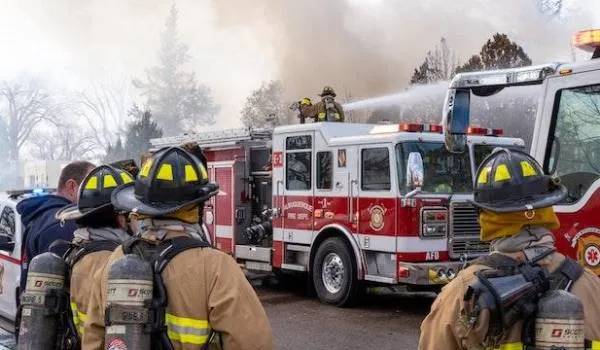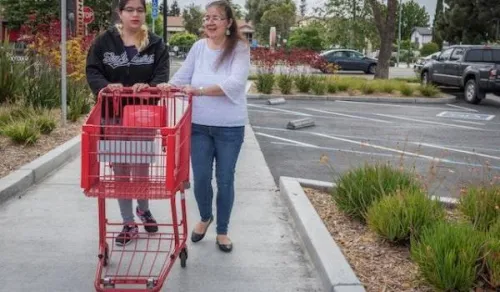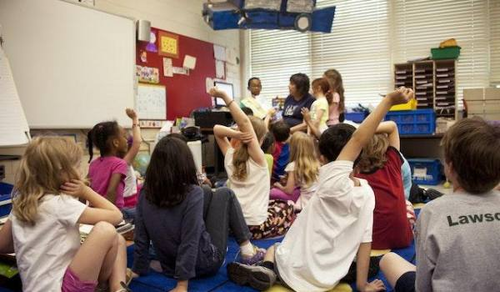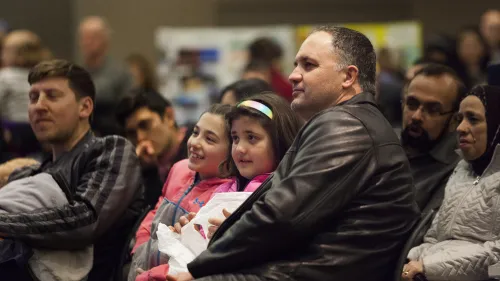Community Services

Government Assistance
Here are some government programs that help newcomers:
Cash Assistance Programs For people who are having difficulty finding a job, two programs provide temporary financial assistance: Temporary Assistance to Needy Families (TANF) for parents with children and Refugee Cash Assistance (RCA) for single and married refugees without children.
Supplemental Nutrition Assistance Program (SNAP)
The Supplemental Nutrition Assistance Program (SNAP) helps low-income individuals and families in the United States buy food. Participants receive a debit card to purchase a set amount of food each month. The amount of assistance varies by state and is based on family size and income. Newcomers may apply for food assistance at a local government office.
Important Update: Due to recent changes, eligibility for SNAP has been restricted for some newcomers. Refugees, asylees, humanitarian parolees, and other individuals with humanitarian protections who have not adjusted to lawful permanent resident (LPR) status are no longer eligible for SNAP benefits. Only U.S. citizens, LPRs, and Cuban and Haitian entrants remain eligible.
Supplemental Security Income (SSI) This is a federal cash assistance program for people who are disabled or over the age of 65 and have little or no income. Child Care Assistance Programs Some communities provide free or low-cost child care for low-income people so they can work or look for work. Public Services Every community has public services available to everyone in the community.
Child Care Assistance Programs
Some communities provide free or low-cost child care for low-income people so they can work or look for work.
Public Services
Every community has public services available to everyone in the community.


Here are a few of the most common public services:
Emergency Services and 911
All communities have fire departments and emergency medical services. To get help in an emergency, dial 911 on the telephone and tell the operator what you need ("Police", "Fire", or "Ambulance") and your location. If you cannot explain the problem in English, just say, "Help" or "Emergency" and do not hang up the telephone. The open telephone line will help the operator know where you are.
Police
Police officers are public servants who protect the public and help people. If a police officer approaches you and asks you to stop, do so. Always comply with an officer's request and remain calm and respectful. If you cannot communicate with the police, ask for an interpreter and wait patiently.
Libraries
Public libraries have books and other materials, such as CDs and DVDs, that residents can borrow free of charge. You must apply for a library card to take materials out of the library. Libraries often offer children's reading programs and classes such as English conversation practice, and many have computers available for public use.
Parks and Recreation
Local parks provide picnic areas, playgrounds, and sports fields to the public. Many parks have regulations about what visitors can and cannot do. Most local parks are free, but state and national parks may charge an admission fee.
Non-Government Assistance
Some service organizations operate with donations from private citizens or with a combination of donations and government funding. They have boards of directors that oversee their work and they must provide annual public reports on their activities, but they are separate from the government.
These kinds of organizations generally fall into one of the following three categories:
National NGOs offer services in locations all around the country, usually organized by a headquarters office in a large city. Some may provide services that help newcomers. The amount, cost, and type of these services vary from place to place, but many offer the following:
Counseling
Immigration status assistance
English classes
Employment services
Interpretation and translation services
Community-Based Organizations (CBOs)
These organizations operate in a local community and provide recreational, social, and educational services to community members. One type of CBO that you may find in your community is the ethnic community-based organization (ECBO). ECBOs are created by former refugees and immigrants and help newcomers in their communities. Some provide adult education classes, organize women's groups, and hold cultural and recreational events.
Faith-Based Organizations (FBOs)
FBOs may include churches, mosques, synagogues, and other places of worship whose mission is to practice their faith. However, there are also many FBOs, which may receive funding from or be connected to various religious organizations, but whose mission is to provide services to individuals and families in need regardless of religious affiliation. Some have English language classes for adults and some give away used clothing and furniture.

